Exclusive 3:16 Interview With Ralph Cudworth
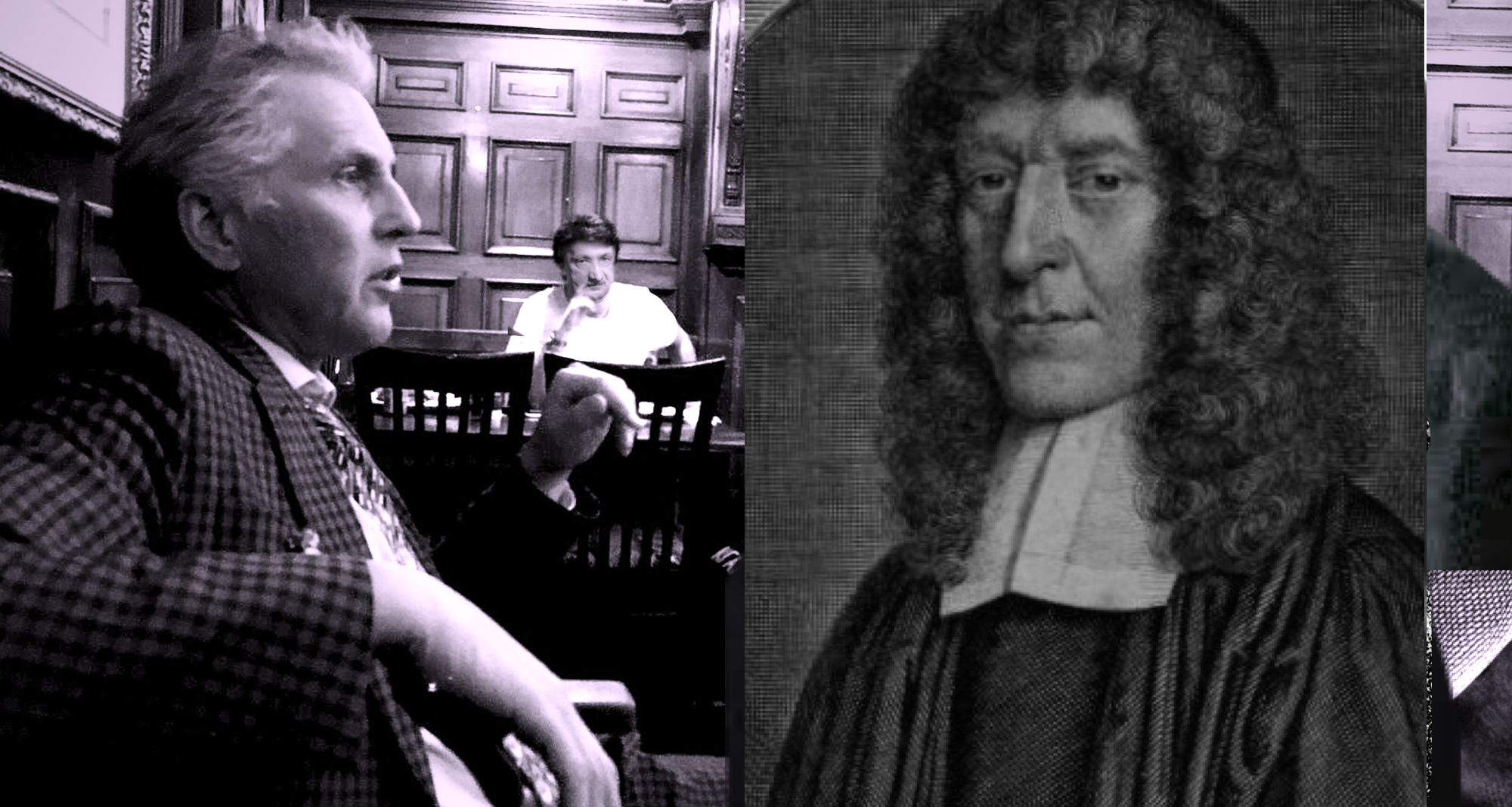
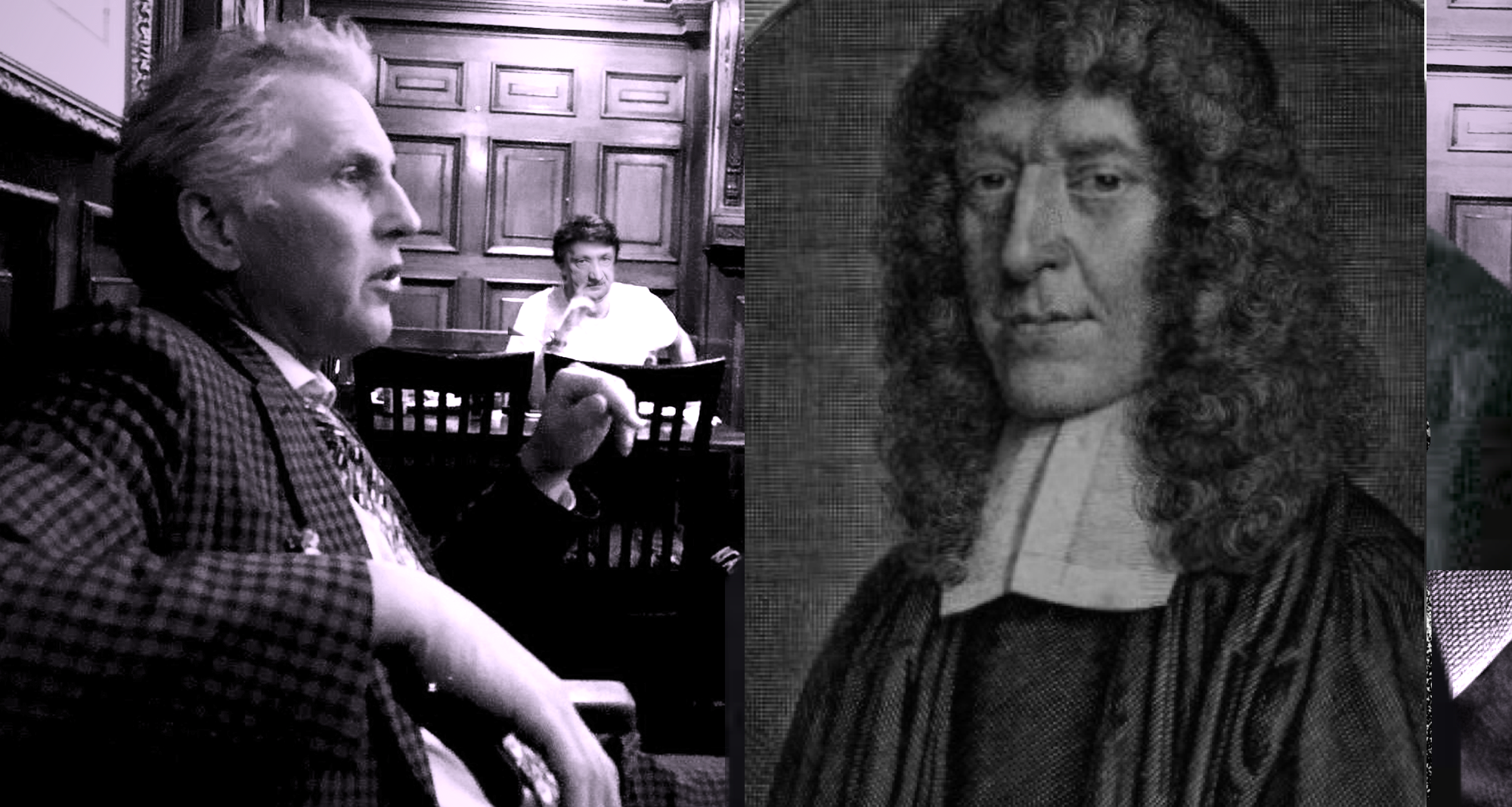
The English philosopher, Ralph Cudworth defies classification within customary categories of the history of philosophy. At a time when mainstream philosophers announced their modernity by breaking with the past, Cudworth is a figure of continuity, steeped in ancient philosophy, yet abreast of contemporary philosophy and science. He shares the anti-scholastic agenda of self-styled modernisers like Bacon, Hobbes and Descartes, with whose philosophy he engages, but frames his most original ideas by recourse to antiquity. Cudworth is usually regarded as a Cambridge Platonist, though he himself does not recognise the label. Although he is normally classified as a rationalist, it has become increasingly apparent that this designation is based on too limited a view of his philosophical writings.
3:16: What made you become a philosopher?
Ralph Cudworth: To prove that God is not mere arbitrary will omnipotent, without any essential goodness and justice decree∣ing and doing all things in the world, evil as well as good and thereby making them alike necessary to us; from whence it would follow that all good and evil morals are mere theoretical, positive, and arbitrary things. The other reason is to show that necessity is not intrinsical to the nature of everything, nor essential to all action but that there is something whereby we have some liberty, or power over our own actions which is the defence of a retributive justice dispensing rewards and punishments throughout the whole world.
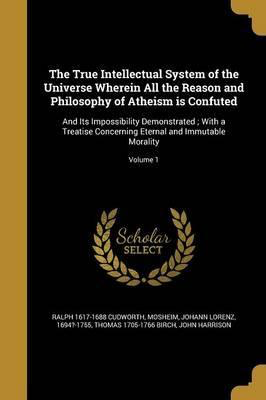
3:16: So would it be fair to say that three things interest you philosophically - the existence of God, the principles of morality and the moral autonomy of humans?
RC: It would. That there is an omnipotent, understanding being presiding over all which is essentially good and just, a morality which is something in its own nature, immutably and eternally just, and unjust; and not by arbitrary will, law, and command only, and that humans are masters of our own actions as to be accountable to justice for them are the three big issues.
3:16: You have a high regard for Descartes and coined the phrase Cartesian even though you take issue with some of his central arguments don’t you?
RC: Yes, Descartes is an acute philosopher.
3:16: You engage with Hobbes extensively too don’t you, seeing him as the parade case naturalistic deterministic materialist?
RC: Yes. He villanises human nature.
3:16: You mount a considerable argument against the idea of determinism and a mechanical universe, which figures even in your defence of God. So let’s start with this. Why is showing determinism false so important to you?
RC: I make atomic physiology the foundation of the Democritic fate which is the very self-same thing as atomic atheism; the only form of atheism that hath publicly appeared upon the stage as an entire philosophical system; or hath indeed been much taken notice of in the world for these two thousand years past. For, though it be true, that Epicurus, (who was also an atomic atheist, (as is afterwards declared) having, in all probability, therefore a mind to innovate something, that he might not seem to have borrowed all from Democritus,) did by violence introduce liberty of will into his. Yet this was, as Cicero long since observed, a most heterogeneous patch of his, and altogether a contradiction of his own principles, as it was to the doctrine of Democritus himself.
There can be nothing more absurd for an atheist to assert liberty of will: but it is most of all absurd for an atomic one. And therefore our modern atheists do here plainly disclaim Epicurus, (though otherwise so much admired by them;) and declare open war against this liberty of will: they apprehending that it would unavoidably Introduce incorporeal substance; as also well knowing that necessity, on the contrary, effectually overthrows all religion by taking away guilt and blame, punishments and rewards; to which might be added also, prayers and devotions.
3:16: Is it because you think the mind precedes the world and stands in causal relation to it, as Sarah Hutton puts it?
RC: I know not this Miss Sutton but it is well put. I would like to meet her. Yes, the mind is first in the order of nature. Knowledge is older than all sensible things; mind is senior to the world, and the architecture thereof. It containeth its immediate intelligibles within itself as the paradigm or platform according to which the sensible world was made. Nature is but the living stamp or signature of the divine wisdom.
3:16: Yes, this ontologically prior mind is God’s mind isn’t it for you? Your world is essentially a version of Cartesian dualism isn’t it, so what principles distinguish the immaterial mental substances from the material ones?
RC: The immaterial principle is self activity. Life or internal self-activity, is to be subdivided into such as either acts with express consciousness and synaesthesis, or such as is without it. Material substances are by contrast ruled by principles of passivity.
3:16: And yet you say that atomism is basically true?
RC: I chiefly insist upon two things concerning it. First, that it was no invention of Democritus nor Leucippus, but of much greater antiquity: not only from that tradition transmitted by Posidonius the Stoic, that it derived its original from one Moschus a Phoenician, who lived before the Trojan Wars, (which plainly makes it to have been Mosaicall;) but also from Aristotle's affirmation, that the greater part of the Ancient philosophers entertained this hypothesis; and further because it is certain, that divers of the Italics, and particularly Empedocles, before Democritus, physiologized atomically: which is the reason he was so much applauded by Lucretius. Besides which, it is more then a presumption, that Anaxagoras his homoeomery or similar atomology, was but a degeneration from the true and genuine atomology of the ancient Italics, that was an Anomoeomery, or doctrine of dissimilar and unqualified atoms. Whereas all that is true concerning Democritus and Leucippus is only this, that these men were indeed the inventors of the atomic atheism.
So I conceive this atomic physiology, as to the essentials thereof, to be unquestionably True, in that the only principles of bodies are magnitude, figure, site, motion, and rest; and that the qualities and forms of inanimate bodies are really nothing but several combinations of these causing several fancies in us: (which excellent discovery therefore, so long ago made, is a notable instance of the wit and sagacity of the ancients:) So this atomic physiology rightly understood is so far from being either the mother or nurse of atheism, or any ways favourable thereunto, (as is vulgarly supposed;) that it is indeed, the most directly opposite to it of any, and the greatest defence against the same. For, first, we have discovered, that the principle, upon which this atomology is founded, and from whence it sprung, was no other then this, nothing out of nothing, in the true sense thereof; or, that nothing can be caused by nothing: from whence it was concluded, that in natural generations, there was no new real entity produced, which was not before.
3:16: And you draw two conclusions from this don’t you?
RC: Yes, that the qualities and forms of inanimate bodies, are no entities really distinct from the magnitude, figure, site and motion of parts; and that souls are substances incorporeal, not generated out of matter.
3:16: Is it because you think immaterial substance to be a bulwark against atheism that you reject Plato and Aristotle even though they take issue with Democratus and Leucippus?
RC: Indeed. Atomic atheism is really nothing else but a rape committed upon the atomic physiology and so I by no means applaud Plato, nor Aristotle, in their rejecting this most ancient atomic physiology, and introducing again that unintelligible first matter and those exploded qualities and forms into philosophy. For though this were probably done by Plato out of a disgust and prejudice against the atomic atheists, which made him not so well consider nor understand that physiology; yet was he much disappointed of his expectation herein; that atomology which he exploded, (rightly understood), being really the greatest bulwark against atheism; and on the contrary those forms and qualities which he espoused the Natural Seed thereof; they, besides their unintelligible darkness bringing something out of nothing in the impossible sense which is the inlet of all atheism.
3:16: Is atomism the only form of atheism you consider?
RC: Not at all. I have discovered a certain form of atheism, never before taken notice of by any modern writers, which we call the Hylozoick: which notwithstanding, though it were long since started by Strato, in way of opposition to the Democritick and Epicurean hypothesis; yet because it afterwards slept in perfect silence and oblivion should have been here by us passed by silently had we not had certain knowledge of its being of late awakened and revived by some who were so sagacious as plainly to perceive, that the atomic form could never do their business, nor prove defensible and therefore would attempt to carry on this cause of atheism in quite a different way by the life and perception of matter.
The most ancient atheistic hypothesis was the eduction of all things, even life and understanding itself out of matter in the way of qualities or as the passions and affections thereof, generable and corruptible. This form of atheism is styled by me not only Hylopathian, but also Anaximandrian: however I grant some probability that Anaximander held an homoeomery of qualified atoms, as Anaxagoras afterwards did; the difference between them being only this, that the latter asserted an unmade mind, whereas the former generated all mind and understanding, out of those qualified atoms, hot and cold, moist and dry, compounded together: because we judged this difference not to be a sufficient ground to multiply forms of atheism upon.
3:16: You also talk about religious atheism don't you?
RC: Yes Richard, there is also that strange kind of religious atheism which asserted not only other understanding beings, superior to men, called by them Gods; but also amongst those one supreme or Jupiter too; nevertheless native and generated at first out of night and chaos, (that is, senseless matter) as also mortal and corruptible again into the same. Besides which, there is yet a forth atheistic form taken notice of out of the writings of the Ancients, (though perhaps Junior to the rest, it seeming to be but the corruption and degeneration of Stoicism) which concluded the whole world, not to be an animal, (as the Pagan theists then generally supposed) but only one huge plant or vegetable, having an artificial, plantal, and plastic nature as its highest principle, orderly disposing the whole, without any mind or understanding.
3:16: You agree that there is this so-called plastic nature don’t you?
RC: Yes but I insist largely upon an artificial, regular and plastic nature devoid of express knowledge and understanding as subordinate to the Deity. It is the mere umbrage of intellectuality, Richard, a faint and shadowy imitation of mind and understanding.
3:16: Why do that?
RC: Chiefly to confute those cosmo-plastic, and Hylozoick atheisms. Though I had a further Design also for the defence of Theism: for as much as without such a nature either God must be supposed to do all things in the world immediately, and to form every gnat and fly, as it were with his own hands; which seems not so becoming of him, and would render his providence to human apprehensions, laborious and distractious; or else the whole system of this corporeal universe must result only from fortuitous mechanism without the direction of any mind which hypothesis once admitted would unquestionably by degrees, supplant and undermine all theism.
3:16: Do you think all religions are in essence monotheistic, even those that appear polytheistic?
RC: Yes. the pagan theologers all along acknowledged one sovereign and omnipotent deity from which all their other Gods were generated or created. The pagan religion, though sufficiently faulty, yet was not altogether so nonsensical as the atheists would represent it out of design that they might from thence infer all religion to be nothing but a mere cheat and imposture: they worshipping only one supreme God, in the several manifestations of his goodness, power, and providence throughout the world, together with his inferior ministers.
3:16: What is the relationship between religion and science?
RC: I by no means grant to the atheists that there is no more than a probable persuasionto be had of the existence of a God without any certain knowledge or science. Nevertheless it will not follow that whosoever shall read my demonstrations and understand all the words of them must therefore of necessity be presently convinced and put out of all manner of doubt or hesitancy concerning the existence of a God. I think were there any interest of life, any appetite and passion against the truth a triangle's having three angles equal to two right whereby mens judgements might be clouded and bribed many would remain at least skeptical about them.
Let’s face it Richard, mere speculation, and dry mathematical reason in minds unpurified, and having a contrary interest of carnality and a heavy load of infidelity and distrust sinking them down cannot alone beget an unshaken confidence and assurance of so high a truth as this, the existence of one perfect understanding being, the original of all things. And consider also, Richard, that minds cleansed and purged from vice may without syllogistical reasonings, and mathematical demonstrations have an undoubted assurance of the existence of a God according to that of the philosopher; whether this assurance be called a vaticination or divine sagacity, (as it is by Plato and Aristotle) or faith, as in the Scripture.
For the Scripture-Faith, is not a mere believing of historical things, and upon inartificial arguments, or testimonies only but a certain higher and diviner power in the soul that peculiarly corresponds with the deity. Notwithstanding which, knowledge or science, added to this Faithwill make it more firm and steadfast and the better able to resist those assaults of sophistical reasoning that shall be made against it.
3:16: Is the world the best of all possible worlds?
RC: Yes. the whole system of things taken all together, could not have been better made and ordered then it is. And indeed, this divine goodness and perfection, as displaying and manifesting it self in the works of nature and providence is supposed in scripture to be the very foundation of our Christian faith when that is defined to be the substance and evidence of whatsoever is (by a good man) to be hoped for. Notwithstanding which, it was far from my intention to conclude that nothing neither in nature nor providence could be otherwise then it is or that there is nothing left to the free will and choice of the deity. And though I insist largely upon that ancient Pythagoric Cabbala that souls are always united to some body or other as also that all rational and intellectual creatures consist of soul and body and suggest several things from reason and Christian antiquity in favour of them both yet I wouldn’t want to dogmatise in either of them, Richard, but would submit them all to better judgments.
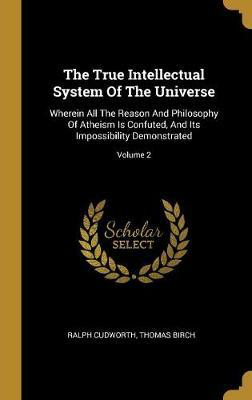
3:16: What is mind and knowledge for you?
RC: Mind is formative of its own cogitations. It is a kind of notional or representative world, as it were a diaphanous and crystalline sphere, in which the ideas and images of all things existing in the real universe may be reflected or represented. Thus, knowledge is not a passion from anything outside the mind, but an active exertion of the inward strength, vigour, and power of the mind, displaying itself from within.
3:16: Are these ideas the actual ideas of all things?
RC: No, they are held virtually and potentially in the mind. They are anticipations.
3:16: So what does the mind do with them?
RC: It frames intelligible ideas or conceptions within itself of whatsoever hath any entity or cogitability.
3:16: You defend freewill against determinists. Why?
RC: We seem plainly clearly to be lead by instincts of nature to think that there is something in our own power so we are not all together passive in our actings, nor determined by inevitable necessity in what ‘soever we do because we praise and dispraise, commend and blame men for their actings unlike inanimate beings or brute animals.
3:16: How does this puzzle you and lead you to think we might have freewill?
RC: When we blame or commend a clock or automaton, we do it so, as not imputing to that automaton, its beings the cause of its own moving well or ill, agreeably or disagreeable to the end it was designed for; this being ascribed only to the artificer; but when we blame a man, for any wicked actions as for taking a way another man’s life, either by perjuries or by wilful murder we blame him not only as doing otherwise than he ought to have done but also as supposing he might have avoided having done it and that it was possible for him to have avoided, it. So he himself was the cause of the evil.
3:16: Why not blame God? You believe he designed us, just like a clockmaker made the clock?
RC: We do not Impute the evil of all men’s wicked actions to God the creator and maker of them as we do the faults of a clock, or watch, wholly to the watchmaker. We free God from the blame of all men’s wicked actions saying God is causeless and guiltless of it but we cast the blame of them wholly on the men themselves, as being principles of actions; and the true causes of the moral defects of it .
3:16: So this is a different kind of responsibility than we might put on someone who might be just badly designed?
RC: Yes. So we blame men acting viciously and immorally but only in another sense do we blame a halting, or a stumbling horse or the natural and necessary infirmities of men themselves when unconstructed by vice|. For in this later case we pity the men , looking upon them as unfortunate but not as faulty but we blame their vices with a displeasure against the persons themselves.
3:16: You take the distinction between disease and immorality as more data supporting belief in freewill don’t you?
RC: Indeed. The same sense of nature’s instincts appears yet more plainly from men’s blaming, accusing, and condemning their very selves for their own actions when done either rashly or inconsiderately and imprudently to their own private disadvantage, or else immorally and viciously and against the dictate of honesty.
3:16: And you think our emotions track this don’t you?
RC: I do. Men have an inward sense of guilt, (besides shame,) remorse of conscience, horror, confusions and astonishment. And they repent of their actions afterward, with a kind of self detestation, and sometimes not without exercising revenge upon themselves as a piece of justice . No man accuses or condemns himself nor looks upon himself as guilty for having had a fever, stone, or the gout when uncontracted by vice. If all human actions were necessary men would be said no more to repent of them than of diseases or that they were not born princes or heirs to a thousand pounds a year.
3:16: Retributive justice is a further data point of importance for you isn’t it?
RC: Yes it is Richard. Mankind has a sense of retributive, punitive and vindicative justice, as not a mere fancy but a thing really existing in nature, when punishments are inflicted upon malefactors for their unjust and illegal actions. For though it be true, that civil punishments do in part look forwards to prevent the like for the future by terrifying others from doing the same or to hinder those malefactors themselves from doing the like mischief again afterwards in like manner by cutting them off by death, as we kill noxious animals, wolves , vipers, serpents and mad dogs, yet it is not true that this is all the meaning of them. In the punishment of civil magistrates they are giving satisfaction to the equitable nature of rational beings, when they see wicked men who have both abused and debased themselves, and also acted injuriously to others to suffer disgrace and pain for their rewards. But mens’ natural instincts do more strongly suggest to them a notion of vindictive justice, in God in inflicting punishments upon notorious wicked persons,. The generality of mankind have always had a strong presage of punishments to be inflicted by God after Death.
3:16: And being blameworthy relies on freewill and morality itself?
RC: Moralists look upon men’s free and voluntary actions as sometimes blameworthy in a peculiar sense.
3:16: What peculiar sense is that??
RC: A peculiar sense called the evil of them, malum culpæ, Richard. An evil of fault in way of distinctions from those other necessary evils which are without fault, of which the doer of them was not properly the cause of.
3:16: And this distinction has a pedigree hasn’t it not just in religion but in other systems, such as Stoicism for example?
RC: According to Cicero no other evil is so much to be feared by you as the evil of fault. According to that Stoical doctrine, the truest and greatest goods and evils of rational beings are in their own free-willed actions, or things in their own power.
3:16: The curious thing about your thinking is that although you believe in a Christian God who made us as we are, and natural instincts that control us, you still think that we have freewill?
RC: According to both ones genuine instincts of nature, rightly interpreted and the tenor of the Christian doctrine I conclude that there is something in our own power, and that absolute necessity does not reign over all our human actions but that there is such a thing as contingent liberty in them.
3:16: So with this data you establish that people believe they have freewill but of course skeptics about this just think such belief is an illusion of some kind! Theists argue that because we are God’s creatures all our natural instincts are preprogrammed. And scientists who don’t believe in God say it’s down to our genes, or the laws of nature that determine everything without remainder. They say for these reasons there can’t be that contingent liberty about which you speak. The naturalist, like mad dog naturalist Rosenberg, might go further and say we need to stop blaming and praising people because everyone is determined to do what they do. What do you say to them?
RC: I don’t know the mad dog naturalist you mention. He at least seems to have bitten the bullet of his convictions. I admire that. Now, these philosophers have two different grounds.
3:16: Ok, so what’s the first?
RC: First, according to some, this contingent liberty is a thing both unintelligible and impossible to exist in nature.
3:16: Ok, and what’s the second reason?
RC: They think that though there be such a thing possible and actually existing yet it is no such thing can be exercised by any but God Almighty alone. So God is the only self determining being and the actions of all creatures were by his decrees from all eternity made necessary.
3:16: Ok, so let’s look at their first grounds. What are their reasons for thinking freewill is unintelligible and impossible in nature?
RC: There are five reasons: First because nothing can move itself, but moves by necessity. Secondly because even if it be granted that there is something self-active, yet nothing can change itself, nor act upon itself, or determine its own action because the same thing cannot be both agent and patient at once. Thirdly because nothing can come to pass without a cause; whatsoever is done or produced had a sufficient cause, and antecedent.
3:16: This is Hobbes’ point isn’t it?
RC: Yes, in fact Hobbes adds that every sufficient cause is a necessary cause.
3:16: Ok, so what’s the fourth reason?
RC: They argue that all volition is determined by good reason, or the appearance of the greater good. Now the appearances and reasons of good are in the understanding and therefore all the actions of the understanding are not arbitrary but necessary. It follows that all motions must be necessarily determined. Nothing can ever determine itself but will stand indifferent for ever without action either way.
3:16: And Hobbes adds a fifth reason doesn’t he?
RC: Hobbes has a sophistical argument regarding the necessity of every disjunctive proposition . From these and such like grounds many of the ancients concluded that there is a chain of causes from eternity to eternity, every link whereof is necessarily connected with both that which went before, and that which follows after.
3:16: So this is the idea that if we could trace all the causal lines of everything then we’d be able to know everything that has happened and, if we were able to know the necessary causal laws, we would also know what will happen in the future from knowing the initial state of the universe isn’t it? This is a version of Laplace’s demon idea, or Carnap’s idea that we could create a world from just a few initial principles, and David Chalmers recent version?
RC: Yes, and for Hobbes it depends upon many antecedent speculations, therefore he will not press it for this is to make infinite, complex chains of causes all whose links are necessary so that according to him every action does not only depend upon a single chain but is complex and entangled with infinite chains. I haven't read Mr Carnap or Mr Chalmers.
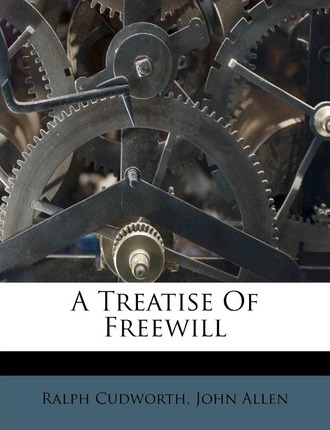
3:16: Now what are the reasons for thinking that only God could have contingent liberty?
RC: There are four main reasons given for this. First because to make any creature determine itself is to make it independent of its creator, which is contradictious to thee idea of God. Secondly because if there be contingent liberty in any creaturely agents there could be no divine prescience of their actions. Thirdly because this is a ground of Pelagianism, a denying the necessity of Divine Grace by reason of it being taken away by selfpower, or freewill. Lastly it seems absurd that men should be damned to all eternity for a contingent turn of their own will.
3:16: Why don’t you think any of these arguments are convincing?
RC: Suppose two numerically distinct worlds made by God Almighty at the same time; exactly alike to one another two Adams and two Eves indistinguishably the same both in soul and body, multiplying themselves by propagation for several thousands of years. If there was no such things as contingent liberty in nature they must needs all along at the same time make the same motions, speak the same words, write the same books, and all as exactly alike to one another, as those of motions of the image in a glass are to the body without it. If we can not think this to be possible it must be granted that there is a contingent liberty and that men have something in their own power, something of their own so they can change themselves and determine themselves and not be liable to a fatal, adamantine chain of causes.
3:16: Well it may seem terrible, and hard to imagine, but I don’t think it couldn’t be thought true. After all, the Stoics thought the world would be created again and again and run in exactly the same way of necessity.
RC: Yes they did. But consider this Richard. It cannot be denied there are and may be many cases in which several objects propounded to our choice at the same time are so equal or exactly alike as that there cannot possibly be any reason or motive in the understanding to determine the choice to one rather then another of them. Suppose one man should offer to another twenty guinea pieces of gold, or golden balls or silver goblets so exactly alike he could discern no difference between them. Now it cannot be doubted, in this case, any man would certainly choose one and not stand in suspense or demure and take neither because he could not tell which to prefer . Wherefore he being necessitated by no motive or reason antecedent to choose this rather then that he must determine himself to contingently, it being all one to him which he took. Nor could there be any foreknowledge beforehand which of these would certainly be taken.
3:16: But presumably there was some reason that made him chose the way he did – and whatever it was, if it was necessary, then it would be repeated ad infinitum?
RC: If two equal scales in a balance have equal weights put into them; they will rest to eternity and neither of them be able to move up or down. But rational beings and human souls standing in equilibrium as to motives and reasons will not perpetually hang in suspense, but can add or cast in some grains into one scale rather then the other to make it move though here the determination will be contingent and not necessarily linked with what went before. There will be a sufficient cause but not necessary. There could be no necessity why the number of the stars should be either even or odd whereas one of them it must needs be. So likewise Christianity assuring us that God has appointed a day, in which he will judge the world but of that day and hour knoweth no man, no not the Angels which are in Heaven, neither the Son, but the Father — this is a thing determined by the arbitrary good will and pleasure of God the Father.
3:16: Ok, but if the decision is merely arbitrary is this contingent liberty what we want for freewill?
RC: When two objects perfectly equal and exactly alike are propounded to a man’s choice he cannot be justly blamed by any other for choosing one of them rather then another. And the case must needs be the same in all other objects of choice that have a perfect equality of good in them or are means equally tending to the same end. There can be no just blame or commendation but only where the objects being in themselves really unequal, the one better, the other worse, a man refusing the better, and choosing the worse. But the example shows we have a self-determining power of action. There is no other cause to be required or assigned why he doth this rather than that thing but only himself.
3:16: So this is freewill?
RC: Yes. Freewill is the power to not necessarily be determined by any antecedent causes, motives of reason, or appearances of good.
3:16: And that’s why we can be blamed or praised for some of the things we do?
RC: Yes.
3:16: You have problems with those you call ‘indifferent freewillers ‘ don’t you? What do these indifferent freewillers argue?
RC: They say necessity and liberty are contradictious to one another and this they conceive to be demonstratively proved from the nature of sin because a man could not be guilty of sin if he were any way necessitated or previously determined so that he could not as well have done otherwise as that which he did. They conclude that the will after all things put the last dictate or judgment of the understanding itself therein included is yet free and absolutely indifferent, both as to exercise and to specification, and doth determine itself to do or not, to this or that, fortuitously. There being no other way, as these men conceive, to salve the liberty of the will but this only.
3:16: What’s the problem with this?
RC: Richard, such absolute indifference is repugnant to the phenomena and experience. Think about it Richard, for a man to be indifferent either to save or destroy his own life that he may as readily do one as the other can neither be a perfection nor liberty nor power unless extremity of madness be such.
3:16: Well, it might be insane to judge that I ought not care whether I live or die but nevertheless wouldn’t it be a foundation of freewill that I could always choose to act one way or the other?
RC: Indifferency would be the same thing with necessity.
3:16: Will is not the same as freewill for you is it? You argue that the will always aims at goodness just as judgment aims at truth don’t you?
RC: Yes Richard, I think it is not in our power to assent to falsehood as falsehood so neither can we will or choose any evil as evil. We do not only will good as such necessarily and avoid evil but we do always necessarily choose the greater apparent good and refuse the greater apparent evil.
3:16: Some of the things the indifferent freewillers say you agree with but it’s this distinction between will and freewill that they misunderstand and make their basic mistake according to you isn’t it?
RC: Look, Richard, it cannot be denied but that there is something of contingency and indifferency included in the notion of freewill. But indifferent freewillers, knowing not where to place this contingency, placed it in the will itself after all things put that were antecedently requisite to the volition of this or that.
3:16: And what’s the problem with doing that?
RC: They made the indifferency and contingency of freewill to be seated in the will itself. Contingency that properly belongs to free-will comes in rather amongst some antecedent requisites, than the mere volition or command of action.
3:16: So what counts as these antecedent requisites?
RC: As I said, we are not merely passive to our own practical judgments and to the appearances of good but contribute something of our own to them to make them such as they are. Nature begins and proposes variety to our choice exhibiting the fantasies of two different goods rudely and inchoately.
3:16: So that’s your sentimentalism feeding into your thinking here whereby our sentiments represent things as good and evil?
RC: Yes. We possess vital sentiments. Nature begins and proposes variety to our choice exhibiting the fantasies of two different goods rudely and inchoately. After all, animal delight isn’t honesty Richard.
3:16: And you think we can influence these appearances of good and evil don’t you?
RC: Indeed they may be very different accordingly as we do more or less intensely consider or deliberate.
3:16: How can we influence our judgments of the greater good?
RC: The soul has as was before expressed a more interior self-power over its whole self, which may be called its acting and working upon itself in a peculiar sense, in that it can recollect itself more or less, excite and quicken and stir up itself both to attention, consideration and also to active exertion of its own vigor and strength. It can intend itself more or less in its several operations in contemplation, consultation, and endeavors of action, all which may be called by this general name the soul’s self-intending and self-exerting power, a power of intending and exerting itself more or less in all its vital energies whereby it sets itself to act and makes itself do what it doth.
The soul may plainly either relax its own powers and vigors or put forth itself into a tonic exertion of those sinews and nerves, those powers and strengths which it is conscious to itself of, as we can either intend the nerves and muscles of the arm, and stretch it out stiffly, or relax them and let it fall down. As we more or less intend ourselves so do we differently judge and will.
3:16: So this is freewill?
RC: Yes the faculty of sui potestas, or power over ourselves, whereby the soul can act upon itself, intend and exert itself more or less is freewill. Freewill or self-power is a power of intending itself in a way of consideration, in recollection, self-attention or introspection, in speculation about truth and falsehood and deliberation about what is practically good and evil in life, again in a way of vigorous exertion of itself to resist the lower inclinations and promote itself towards the higher principles.
3:16: Is freewill an all or nothing thing?
RC: No, as I indicated just now: the soul has a power of intending or exerting itself more or less. There are degrees of self-intention. After all, Richard, we can exercise in active and laborious self-intention and self-exertion or a sluggish self-remission, relaxation and languor.
3:16: So can we improve our judgments of the greater good according to you?
RC: Yes. Free-will or self-power is nothing but a self-promoting power to good.
3:16: Indifferent freewillers think we cause our volitions contingently, but you don’t agree with this do you?
RC: No, for it is impossible to conceive self-power that is a power of actuating, intending and exerting of one’s self more or less without a freedom from inward natural necessity and the necessity of extrinsic determination from some other agent without, that is, without contingency or an ambiguous possibility both ways.
3:16: So for you if we think we ought to do something then we must necessarily will to do it, and also that an agent’s judgment of what counts as the greater good may itself depend on the prior exercise of freewill and our ability to resist appetite and so forth?
RC: That’s what I meant before when I said contingency that properly belongs to freewill comes in rather amongst some antecedent requisites than the mere volition or command of action. If there should be a further reason demanded why the soul as self-comprehensive and self-powerful should sometimes determine to intend and exert itself and at other times again to remit and relaxate itself I say that the soul itself being autokinetical or self-active has a power of determining itself and therefore no further cause of it is to be sought.
3:16: Is there however a sense in which I might have willed otherwise, not because I might have willed contrary to my judgment of the greater good (as the indifferent freewillers claim), but because I might not have exercised my freewill by exerting myself in deliberation as I did, in which case I might have judged, willed, and acted differently?
RC: I think there is Richard. The contingency of freewill also transfuses itself into our volitions and actions. Take praise and blame: For the determination of the external actions of freewilled beings wholly depends upon a more inward determination of themselves or the exercise of an interior self- power which they have whereby they can more or less intend themselves, in self-recollection, and self-exertion, and all blame and commendation which are the properties of freewill arise from this latter only.
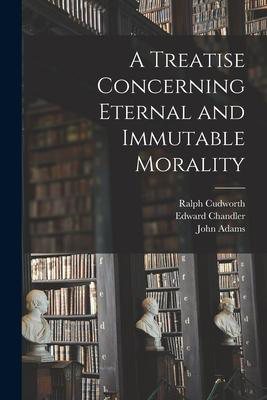
3:16: If this is so why do you think we need divine grace for achieving righteousness and meriting salvation?
RC: Well, the aid and assistance of divine grace is necessary both for the recovery of lapsed souls and for their perseverance. Why? Because our decisions beget some little disposition and inclination in the soul to judge and will the same again and receiving many such like additions from repeated action grow up by little and little into a confirmed habit. The more freewill is acted and exercised the more doth the strength and vigour of it increase and so on the contrary the voluntary remission and relaxation of it contracts a further weakness and imbecility, languor, and accidity upon it.
So now, Richard, imagine two men, one habitually virtuous and the other obdurately hardened in vice. Facing the same occasions of temptations everyone would be confidently assured that the one would certainly close with it and the other as certainly reject it on grounds of self-contracted necessity of habit . Some are so fixed in habits of virtue or vice that there is no probability at present of their acting contrary to them. Of course free-will fixed habitually upon good proves often a thing more inexpugnable than brazen walls and iron bars, but think of the habits of vice Richard, and shiver!.
3:16: And these habits of vice are your concern when discussing the necessity of grace aren’t they?
RC: Though in the lapsed state of mankind autexousiousness or self-power to good is not universally extinguished in all yet it being so much weakened as it is, the difficulty of man’s recovery is thereby so great that it is very improbable that without some further divine assistance many would emerge out of that state and therefore here is a fitting opportunity for the divine grace and goodness to display itself compassionately in offering further strength unto them, partly by outward providential dispensations, partly by suggestion of thoughts that may occasionally excite passions and resolutions, partly by inward excitations and attractions in the bottom and centre of their souls, and partly by corroboration of their power of freewill.
3:16: Ok, so divine grace helps us, but is it necessary?
RC: Richard, I do not say that moral freewill and self-power is utterly extinguished in all men by original sin or the fall nor in any persons that by new vicious habits have further depraved themselves but rather that they are so exceedingly weakened that without further assistance of divine grace all that they could do would prove ineffectual.
3:16: So we tend to have ineffectual freewill without divine assistance?
RC: This moral freewill in man’s lapsed state, especially in those which are more deeply sunk in by contracted habits of their own is a thing which in itself alone is not sufficient or effectual without the supervenient assistance of divine grace actuated concomitant.
3:16: You’ve said the will is not the same as freewill. The will is determined by judgments of goodness, whereas freewill is not necessarily determined by anything. But if we will to freewill then freewill is also ultimately grounded on judgments of goodness isn’t it? This is Hobbes’ point isn’t it?
RC: Hobbes pah! To say that a man can will if he will is an absurd speech. Now the absurdity of this assertion will appear in that it plainly supposes a progression in infinitum from one will to another without end for if a man’s will be therefore free and not necessary because he doth not only will to do a thing but also wills that very will, then the first of these two wills must needs be necessary and not free unless it were caused also by another antecedent will, and so a man must not only will to will, but also will to will to will. Neither can we stop here but we must go forwards infinitely for if we stop anywhere then the last will in that retrograde order which is indeed the rest of all those wills being not itself willed but having an antecedent cause which is not will and therefore a necessary cause will defuse and propagate this its necessity into all the consequent wills and so the whole chain of them would be necessary.
3:16: So how do you answer this?
RC: All the strength of this argument lies only in an equivocation of the word will which may be either taken for appetite or else for self-determination. This objector seems to suppose as if the word were taken in no other sense but that of appetite and then affirms with some seeming plausibility that a man though he will to do yet he doth not will to will. But will in freewill is taken for a self- determining power wherefore the question is whether the soul hath not a power actively to determine itself . Where is now that idle progression in infinitum, from one will to another will backward without end, one self-determining power putting a period to the business?
3:16: But then if freewill is a self-determining power, why do you say its exercise is voluntary?
RC: The soul has two stories or gradations and regions. The hegemonicon region is the soul as comprehending itself. That which is commonly called “will” is merely one power of this higher region. The true notion of will is this, that it is the whole soul reduplicated and self-comprehensive.
3:16: Is it your view that in exercising freewill we act for a reason but that the reason doesn’t necessarily determine the action?
RC: Quite. Motives and considerations and outward circumstances may provoke and incline to the intending and exerting of one’s self, but they do not thereby impose an absolute necessity upon all the consequent degrees of self-intention. And don’t forget Richard that freewill is also the power which the soul has over its whole self to intend and exert itself more or less in order to good and is that power whereby such imperfect beings are enabled as it were to grasp more and more after their own perfection.
3:16: If exercising freewill improperly is failing to do what we ought to do and worthy of blame then wouldn’t we be more perfect beings without freewill?
RC: Yes.
3:16: So for you freewill in part determines the will, and it is freewill not the will that is held responsible for blame or praise and so on. Let me be clear then: are you saying that we aren’t in control of our actions or will but we are in control of our prior exercise of freewill and its through our freewill that we try and discern through our actions and willing the greater good?
RC: Yes Richard. Through our exertion or intention, yes.
3:16: Because it’s that freewilling that is caused contingently?
RC: Exactly.
3:16: Do animals have freewill?
RC: Let me quote first a passage from Lucretius’s De rerum natura: “Do you not see also when cells are thrown open at a given moment, that nevertheless the eager force of the horses cannot burst forth so suddenly as the mind itself craves?” Lucretius is here representing Epicurus who conceived that brutes were not merely passive to their own fancies and hormae but that they could add something of their own to them more or less, and actively intend themselves beyond what they suffered or what was by nature impressed upon them; which, if it be so then must there be something in brutes superior to their hormae, some one thing, which, taking notice both of outward objects by sense, and of its own fancies and hormae, can intend them more or less and add more or less to them.
Now at first I couldn’t think as Epicurus that there is such a liberum arbitrium as this even in brutes themselves there being no appearance that they have so large a prospecting and freely discursive faculty as that reason in men is about matters of interest and utility, but the discord which is between them is of things coordinate and on the same level, a discord of narrow short-sighted passions alternately shuffling with one another where the victory at last a naturally falls to the strongest.
3:16: Have your views changed?
RC: Now it is not easy to exclude brute animals from such a contingency as this, because there may be objects proposed to them (as of meat and drink) so exactly equal, and placed at such equal distances for a considerable time as that it cannot be conceived what physical cause there should be necessarily to determine them at last to either of them or to this rather than that. And yet they will not hang in suspense but certainly do one or other. So again where they are distracted betwixt an equal fear and aversation on one side, and equal hope or desire on the other, at the same time, as a dog betwixt a whip and a bone they will not always continue in demur and suspense though the scales be exactly even as to motives and causes. There will after a determination sometimes one way sometimes another which cannot well be thought necessary without anything of fortuitous contingency.
3:16: But this kind of liberty can’t result in actions that can be praised or blamed and so it can’t be freewill can it?
RC: Well there may seem to be some further probability of this from hence, because we find by experience that brutes are many of them docible, and can acquire habits, to do many things even to admiration. Now fancies and hormae as such are not capable of habits, no more than of freewill. And therefore that which these habits are in and which thus determines their motions (and their hormae too) must be a kind of hegemonic in the acting probably not without some contingency.
3:16: So you think animals have a degree of human-like freewill or do they have a kind of freewill distinct from human freewill and distinct from the animal freewill of humans too??
RC: Let me put it this way: it is not easy to believe that every wagging of a dog’s tail, every motion of a wanton kitling sportfully playing and toying, or of a flea skipping hath such a necessary cause as that it could none of them possibly have been otherwise.
3:16: Does your idea of freewill require consciousness?
RC: Yes. The mind is present with itself, attentive to its own actions, or animadversive of them, to perceive itself to do or suffer, and to have a fruition or enjoyment of itself.
3:16: But the mind isn’t always conscious is it? You disagree with Descartes on this point I believe, and think plastic nature can work without consciousness in many ways, such as when we sleep? Are there different grades of consciousness?
RC: As I indicated earlier, yes. There’s drowsy and somnolent perception, we can be half asleep and half-awake, we do things non-attendingly and by half a cogitation. The highest consciousness is con-sense, from Plotinus’ term synaesthesis, involving duplication, having duplicity, the mind redoubled upon itself so it is comprehending itself, all its concerns and interests, self-recollection and attention. Self-power or hegemonikon is the watchman of the soul.
3:16: Today we’d call it self-consciousness I suppose.
RC: I think so Richard. Its powers constitute it as the whole person.
3:16: In contrast to powers and capacities at a lower level of awareness.
RC: Quite.
3:16: You’ve read so much, but are there five books you could recommend to take us further into your philosophical world?
RC:
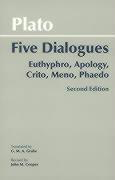
Plato,
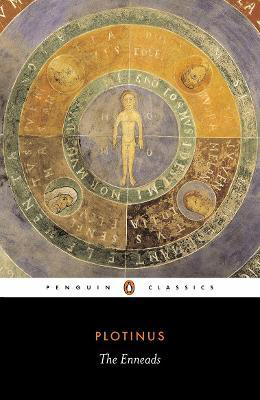
Plotinus,
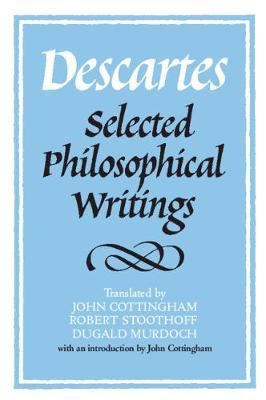
Descartes,

Hobbes,

Spinoza.
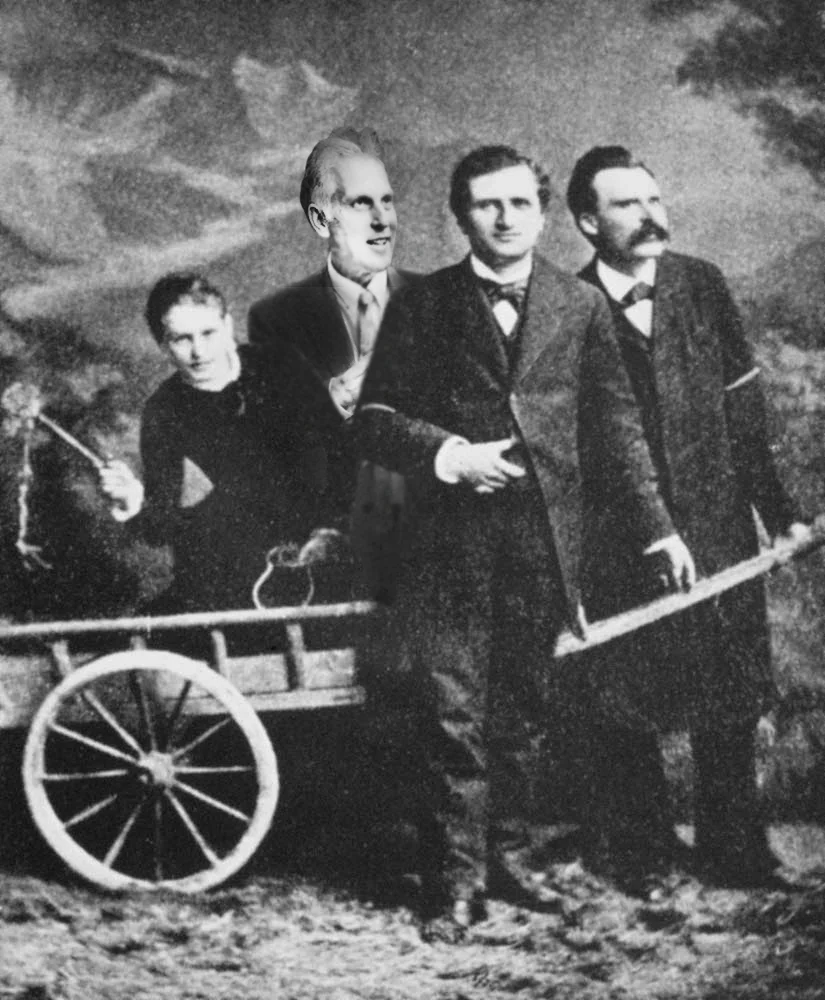
Other Interviews: Newton, Berkeley, Hobbes, Locke, Cudworth, Hume, Leibniz, Leporin Erxleben, Fichte, Schiller, Herder, Kierkegaard, Schelling, Kant, Dilthey, Marx, Descartes, Hegel, Schopenhauer, Nietzsche
About the Author
Richard Marshall is still biding his time.